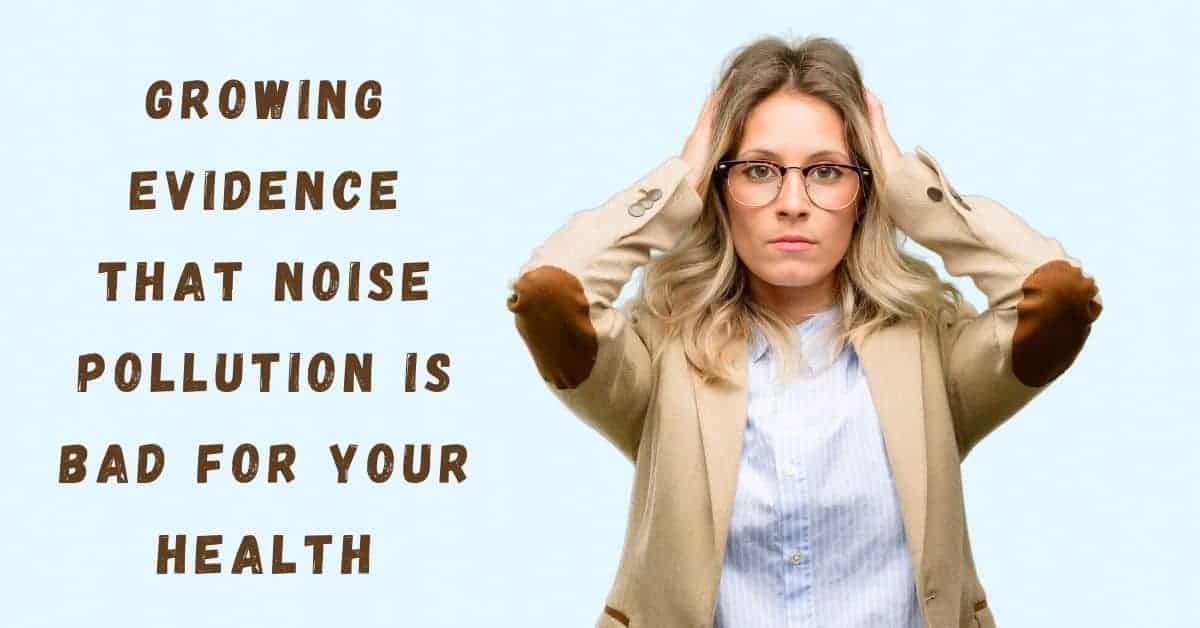We all know that air pollution is bad for our health, but did you know that noise pollution can have a negative impact on our health as well? Multiple studies have found that increase noise volumes over a prolonged period of time can have a negative impact on the health and wellbeing of both children and adults.
The impact of noise pollution on children
Located in downtown Manhattan, near the busy I-95 freeway, there is a four-building cluster of high-rise apartments known as the Bridges Apartments. This apartment complex is famously noisy, especially in the lower stories that are closer to the freeway. As the floors increase, the noise level decreases; however, even on the eighth floor, the noise can be consistently bothersome.
In the 1970s, a team of psychologists found that children who lived on the lower floors (and therefore the noisier floors) of the apartment complex had more difficulty with reading than their peers who lived on higher floors. Additionally, the children who lived on the lower, noisier floors showed signs of decreased speech intelligibility and were less likely to be able to distinguish between similar sounding words such as “sick” and “thick”. Decreased speech intelligibility like this is also an early sign of hearing loss.
Psychologist Jenny Saffran, from University of Wisconsin-Madison, simulated similar noise levels to the Bridges Apartments in her lab and found similar results. Background noises like these impaired the children’s ability to recognize familiar words, and toddlers’ abilities to learn new words
The impact of noise pollution on adults
In addition to causing issues for children, noise pollution has also been known to cause issues for the well-being of adults. Multiple studies from all across the globe have found that increased noise levels over a prolonged period of time increase the risk for depression, anxiety, and overwhelming stress.
A 2011 study conducted in Europe found that people living closer to airports with just a 10 decibel increase in volume equated for a 28% increase in the use of anti-anxiety medication. The reason for this is associated with our evolutionary “fight or flight” signals. When we hear a loud noise, our stress hormones kick into high gear, increasing our heart rate and blood pressure. When we are consistently exposed to noise, these stress signals can continue to operate, and often they are undetected by our conscious mind.
Guidelines from the World Health Organization
Recently, the World Health Organization issued new guidelines on outdoor noise pollution in Europe, pertaining to road, rail, and aircraft noise, as well as leisure sounds and wind turbines. These guidelines can also be useful to consider here in the US, as they aim to protect our health from the effects of excess noise pollution.
Researchers found a connection between increased noise exposure and increased risk of high blood pressure, sleep disturbance, and learning issues in children. There was also a looser connection to obesity, diabetes and adverse birth outcomes.
How to protect yourself from noise pollution
There are many steps you can take to help protect yourself from excess exposure to noise. Firstly, noise exposure is cumulative, and adds up over time. Therefore, the more often you choose to engage in a quieter activity over a louder activity the more you are protecting yourself. For example, choosing to read a book over watching a movie or choosing to take a hike over going to a bar with friends are both ways to cut back on your noise exposure.
There are also measures you can take to protect yourself at home, like installing double pane windows, or planting trees around your home to absorb excess noises.
Hearing Wellness Solutions
The friendly team at Hearing Wellness Solutions is here to help you. If you have noticed changes in your hearing or are simply curious about your hearing health, reach out to us today. We look forward to hearing from you.

